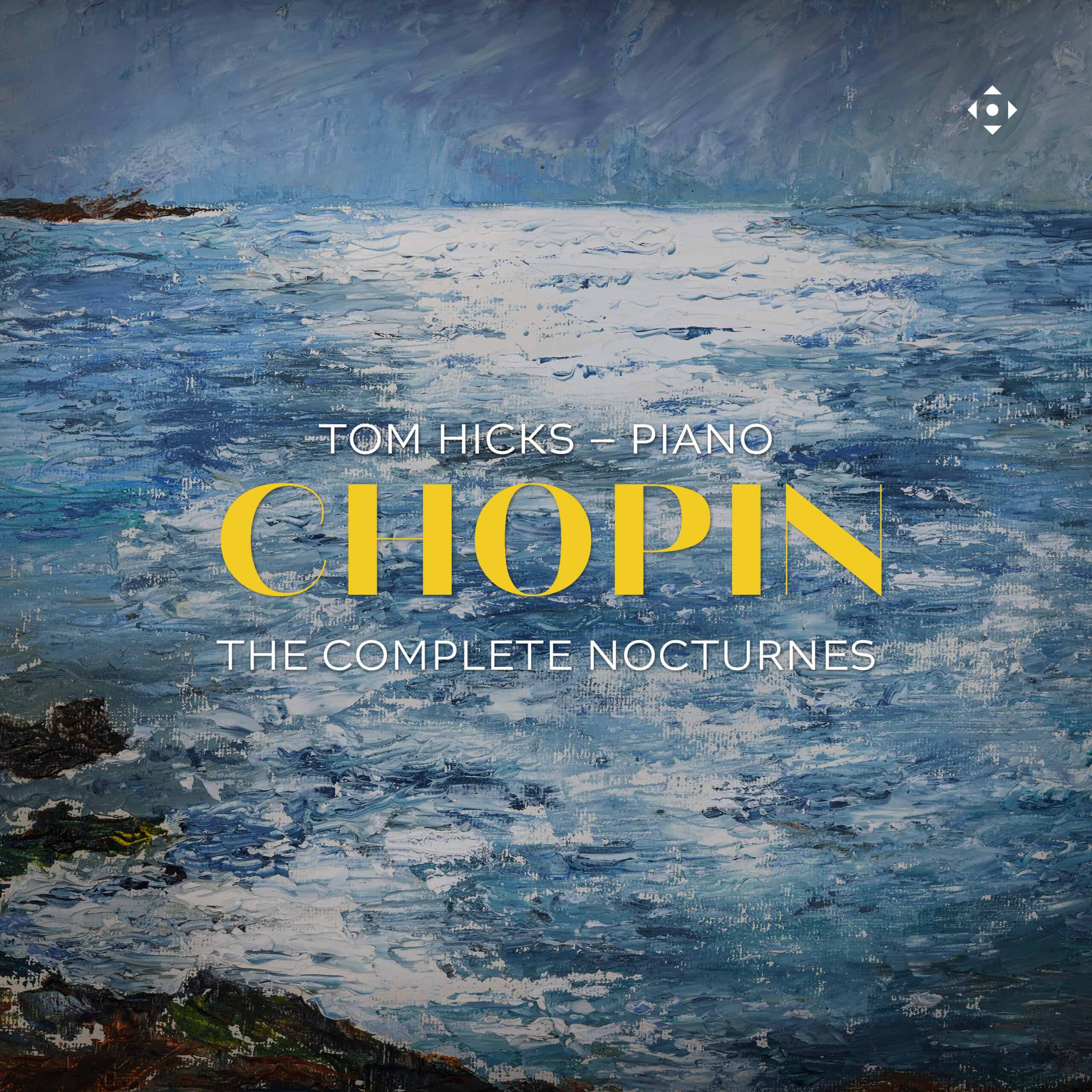ArtMuse London
It’s rare to come across a recording, or indeed a live concert, where one thinks “yes, that is how it should be played!”, but this was my reaction on listening to Tom Hicks’ new recording of Chopin’s Nocturnes. I cannot fault this performance; it is wonderful in so many ways.
Chopin’s Nocturnes are perhaps his best-loved piano works, for audiences and performers alike. And indeed these gems are amongst the most beloved music in the pianist’s repertoire. Tom Hicks’ recording came out of the enforced isolation of the Covid-19 lockdowns, at time when he was exploring “the more introspective and generally calming world of nocturnes”, and creating concert programmes based around this “music of the night”.
The appeal of Chopin’s Nocturnes is their wide range of emotions, colours, textures and sounds; they are also deeply romantic, in the purest sense of the word – elegant, expressive and heartfelt. Hicks captures these aspects so sensitively in his performance, avoiding sentimentality by offering, in my opinion, a very ‘pure’ interpretation of this lovely music.
This ‘purity’ is the result of meticulous study, yet what we hear is not dry academic playing but music which is supple and lyrical, by turns tender and dramatic, heroic and poignant. Hicks spent a lot of time “getting to know Chopin’s creative processes and the historical sources”. A key aspect of this was the presence of multiple autograph manuscripts: Chopin tended to publish multiple first editions in several countries, and in the course of copying out manuscripts for publication, he “would be improvising upon the piece, developing new ideas and progressing his own relationship with the work. For this reason, there are often multiple versions of the same piece, or at least variants of passages within a piece, which are all Chopin’s own.” (Tom Hicks).
And so while fidelity to the score is an important aspect of preparing and performing music, “It is clear from Chopin’s creative practices as a composer and performer that he did not view the musical work, much less the score representing it, as embodying an exclusive and singular truth.” (Tom Hicks).
Thus, for Chopin and indeed Tom Hicks, fidelity to the score should not mean slavish devotion to what is printed on the page, but instead represent a ‘starting point’ for interpretation.
And so in this exquisite new recording we hear the result of Hicks’ research, in particular in the ornamentation, some of it familiar, some unexpected. These are Chopin’s own versions and variants as well as some of Hicks’ improvisations, embellishments one is unlikely to hear in modern recordings of these pieces. This brings a wonderful spontaneity and to the music, and allows one to appreciate details afresh. Coupled with Hicks’ acute sense of pacing, tasteful rubato, unexpected articulation and accents, and a luminous cantabile, the result is a very special recording indeed.
But there’s more: the recording was made at night and the sound engineers have really captured a special sense of intimacy. Longer ‘live’ takes suggest the intimate setting of the drawing room or salon, and one can easily imagine these pieces played in candlelit, with friends. Here, Hicks takes Chopin out of the concert hall and back into the more domestic setting for which this music was written.
Highly Recommended.
@divineartrecordingsgroup
A First Inversion Company
Registered Office:
176-178 Pontefract Road, Cudworth, Barnsley S72 8BE
+44 1226 596703
Fort Worth, TX 76110
+1.682.233.4978












